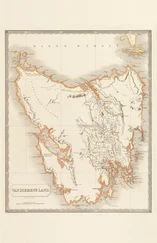Joshua Giddings - The Exiles of Florida
Здесь есть возможность читать онлайн «Joshua Giddings - The Exiles of Florida» — ознакомительный отрывок электронной книги совершенно бесплатно, а после прочтения отрывка купить полную версию. В некоторых случаях можно слушать аудио, скачать через торрент в формате fb2 и присутствует краткое содержание. Жанр: foreign_antique, foreign_prose, на английском языке. Описание произведения, (предисловие) а так же отзывы посетителей доступны на портале библиотеки ЛибКат.
- Название:The Exiles of Florida
- Автор:
- Жанр:
- Год:неизвестен
- ISBN:нет данных
- Рейтинг книги:5 / 5. Голосов: 1
-
Избранное:Добавить в избранное
- Отзывы:
-
Ваша оценка:
- 100
- 1
- 2
- 3
- 4
- 5
The Exiles of Florida: краткое содержание, описание и аннотация
Предлагаем к чтению аннотацию, описание, краткое содержание или предисловие (зависит от того, что написал сам автор книги «The Exiles of Florida»). Если вы не нашли необходимую информацию о книге — напишите в комментариях, мы постараемся отыскать её.
The Exiles of Florida — читать онлайн ознакомительный отрывок
Ниже представлен текст книги, разбитый по страницам. Система сохранения места последней прочитанной страницы, позволяет с удобством читать онлайн бесплатно книгу «The Exiles of Florida», без необходимости каждый раз заново искать на чём Вы остановились. Поставьте закладку, и сможете в любой момент перейти на страницу, на которой закончили чтение.
Интервал:
Закладка:
This gentleman appears to have had more knowledge of the Exiles, than was possessed by the officers of the United States, generally, who supposed that each negro must have a legitimate master. He appears, also, to have had sufficient humanity to suggest the plan of their removal , rather than their enslavement.
In answer to the interrogatories of this committee, General Jackson proposed to compel the Seminoles to reünite with the Creeks , by leaving Florida and returning to the Creek country; and closed his recommendation by saying, “this must be done, or the frontier will be much weakened by the Indian settlements, and be a perpetual harbor for our slaves. These runaway slaves, spoken of by Mr. Penieres , MUST BE REMOVED from the Floridas, or scenes of murder and confusion will exist.” 56 56 Vide Am. State Papers, Vol. VI, pages 411, 412. It will be observed that General Jackson discarded the term “ maroon ,” used by Penieres, as that in Jamaica, signifies “ free negroes of the mountains,” who once fled from service, but have maintained their liberty so long that they cannot be identified, and are therefore admitted to be free.
This suggestion of General Jackson for the removal of the Seminoles, both Indians and negroes, bears date September second, 1822, and is the first suggestion, of that precise character, of which we have knowledge. General Jackson was a warrior, and had more faith in the bayonet than in moral truths. He trusted much to physical power, but had little confidence in kindness, or in justice or moral suasion. He was an officer of great popularity, however, and it is not unlikely that his views had greater weight with those who followed him in official life, than their intrinsic merits entitled them to. It is certain that his policy of removing the Indians and Exiles from Florida, was subsequently adopted by him while President, and has continued to be the cherished object with most of his successors in that office.
The controversy between the State of Georgia and the Creeks had been settled at Indian Springs. In the treaty entered into at that place, the United States had held the Creek Nation responsible for the action of the Seminoles, under the plea that they were a part of the Creek Nation. Having obtained two hundred and fifty thousand dollars from the Creeks in this way, to satisfy the slave claimants of Georgia, the Executive now suddenly became satisfied that the Seminoles were a distinct and independent tribe, and he prepared to treat with them as such. Commissioners were appointed for that purpose, and efforts made to collect their chiefs, warriors and principal men, in order to carry out this object.
Suspicious of the objects which prompted this proposal, the Indians were unwilling to meet the commissioners. Runners were sent to the different bands, and eventually some thirty or forty were collected. These were declared by the commissioners to represent a majority of the Seminole tribe, and (Sept. 18) they proceeded to form the treaty of “Camp Moultrie.” The letter of instructions, from the Secretary of War, was specific on one point only. The commissioners were directed to so arrange the treaty, as to constrain the Indians to settle within the territory south of Tampa Bay, excluded from the coast on all sides by a strip of country at least fifteen miles in width. This would have taken from them their most fertile lands on the Suwanee River, the Appalachicola River, and in the vicinity of the Mickasukie Lake. Some six chiefs, who had taken possession of the plantations which had been opened and cultivated by the Exiles murdered at “Blount’s Fort,” refused to sign the treaty. They were, however, prevailed upon to agree to the treaty, when it had been so modified as to give them each a reservation of fertile lands, to meet their own necessities.
By agreeing to these stipulations, the commissioners obtained their signatures to the treaty – the United States guaranteeing to the Indians peaceable possession of the country and reservations assigned them. They also covenanted to “ take the Florida Indians under their care and patronage, and AFFORD THEM PROTECTION AGAINST ALL PERSONS WHATSOEVER,” and to “ restrain and prevent all white persons from hunting, settling, or otherwise intruding , upon said lands.” They also agreed to pay the Indians six thousand dollars in cattle and hogs, furnish them with provisions to support them one year, and pay them five thousand dollars annually for twenty years. But one great object of the treaty was embraced in the seventh Article, which was expressed in the following language:
“The chiefs and warriors aforesaid, for themselves and tribes, stipulate to be active and vigilant in preventing the retreating to, or passing through, the district, or country assigned them, of any absconding slave, or fugitives from justice; and they further agree to use all necessary exertions to apprehend and deliver the same to the agent , who shall receive orders to compensate them agreeably to the trouble and expense incurred.”
It is worthy of note, that the commissioners, acting under instructions of the Secretary of War, now assured the Seminoles that they had been a separate and independent tribe more than a century; while other commissioners, acting under instructions from the same Secretary, only twenty months previously, insisted that the Seminoles were, at that time, a part of the Creek tribe; and on that assumed fact, the Creeks were held responsible for the value of such slaves as left their masters during the Revolution and prior to 1802, and took up their residence with the Seminoles. But these contradictory positions appeared to be necessary to sustain the slave interest.
It may be remarked that from the signing of this treaty, there was no longer any controversy between our Government and the Creeks in relation to fugitive slaves. That quarrel was transferred to the Seminoles; and now, after thirty-four years have passed away, and many millions of treasure have been expended, and thousands of human lives sacrificed, at the moment of writing these incidents, our army is actively employed in carrying on the contest which arose, and for more than the third of a century has been almost constantly maintained, for the recapture and return of these people; and although our members of Congress from the free States had witnessed the long and expensive contest, and the vast sacrifice of blood and treasure, which had been squandered in efforts to regain possession of the Exiles; yet we do not find any objection to have been raised or protest uttered against this new treaty, in either branch of our National Legislature. Indeed, so far as we have information on the subject, the appropriations for carrying it into effect were cheerfully made, without objection.
This compact drew still more closely the meshes of the federal power around the Exiles. The United States now held what is called in slaveholding parlance the “legal title” to their bones and sinews, their blood and muscle, while the Creek Indians were vested with the entire beneficial interest in them. But neither the United States nor the Creek Indians had been able to reduce them to possession. The white settlements were, however, gradually extending, and the territory of the Seminoles was diminishing in proportion; and it was easy to foresee the difficulties with which they were soon to be surrounded.
By the treaty, many of their cultivated fields, and most of the villages, which they had recently defended with so much bravery, were given up to the whites, and those who had so long occupied them, were compelled to retire still further into the interior, and commence new improvements. A few Exiles remained with the chiefs who held reservations upon the Appalachicola. Those who remained, however, were persons who had become connected by marriage with the Indians belonging to those small bands, from whom they were unwilling to separate.
Читать дальшеИнтервал:
Закладка:
Похожие книги на «The Exiles of Florida»
Представляем Вашему вниманию похожие книги на «The Exiles of Florida» списком для выбора. Мы отобрали схожую по названию и смыслу литературу в надежде предоставить читателям больше вариантов отыскать новые, интересные, ещё непрочитанные произведения.
Обсуждение, отзывы о книге «The Exiles of Florida» и просто собственные мнения читателей. Оставьте ваши комментарии, напишите, что Вы думаете о произведении, его смысле или главных героях. Укажите что конкретно понравилось, а что нет, и почему Вы так считаете.












